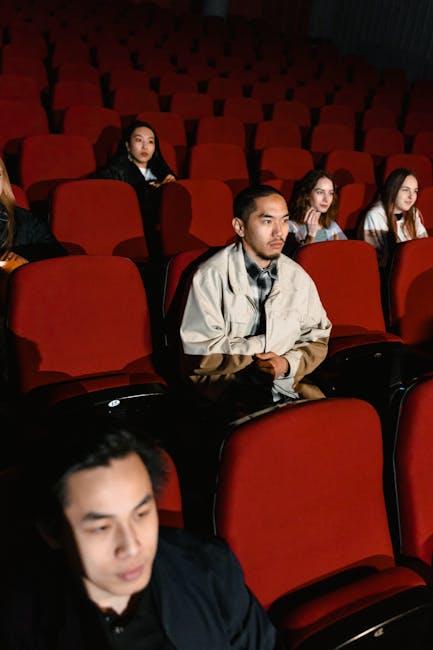In an era where cinematic landscapes are constantly evolving, the question arises: Can modern audiences still relate to the themes in classic films? These films, often revered for their pioneering narratives and timeless artistry, offer a window into the social and cultural fabric of their times. Yet, as contemporary viewers navigate a vastly different world, the relevance of these enduring stories warrants a closer examination. This article delves into the intersection of past and present, exploring whether the universal themes of love, ambition, conflict, and morality in classic cinema continue to resonate amidst today’s rapidly shifting paradigms. By analyzing key examples and audience responses, we aim to uncover the enduring connections—or disconnections—between classic film narratives and modern sensibilities.
Understanding Timeless Themes in Classic Cinema
Classic films have long served as mirrors reflecting universal human experiences, and their themes often transcend the era in which they were created. Modern audiences, despite living in a rapidly evolving world, can still find relevance in these timeless narratives. The struggles depicted in films like “Casablanca” or “To Kill a Mockingbird” resonate because they delve into the complexities of love, justice, and identity—concepts that remain at the core of human existence.
- Love and Sacrifice: Movies like “Gone with the Wind” explore the depths of romantic and familial love, often highlighting the sacrifices individuals make for those they cherish.
- Social Justice: Films such as “12 Angry Men” and “Guess Who’s Coming to Dinner” challenge societal norms and advocate for equality and fairness, themes still relevant in today’s discussions on race and justice.
- Identity and Self-Discovery: Works like “Rebel Without a Cause” delve into the journey of self-discovery, a timeless quest that resonates with individuals across generations.
By engaging with these enduring themes, modern viewers can gain insights into the human condition, understanding that while times may change, the fundamental issues we face often remain the same.

Analyzing Modern Resonance with Vintage Narratives
Classic films often serve as a mirror reflecting the societal values and challenges of their time. Yet, the core themes—love, ambition, conflict, and identity—remain timeless. Modern audiences can find resonance in these narratives by examining the universal human experiences they portray. For instance:
- Love and Relationships: Whether it’s the passionate entanglements in “Casablanca” or the complex dynamics in “Gone with the Wind,” these films explore the intricacies of human connections that are just as relevant today.
- Societal Conflict: Movies like “12 Angry Men” delve into justice and morality, issues that continue to spark discussion in contemporary settings.
- Personal Ambition: The relentless pursuit of dreams depicted in “Citizen Kane” mirrors the modern quest for success and self-fulfillment.
By framing these narratives within the context of today’s world, viewers can gain insight into how far society has come—and how much remains unchanged. This exploration fosters a deeper understanding and appreciation of the enduring impact these films have on modern culture.
Bridging Generational Gaps Through Cinematic Storytelling
Classic films often encapsulate universal themes such as love, ambition, and moral conflict, which remain relevant across generations. Modern audiences, while entrenched in a fast-paced, technology-driven world, can still find resonance in these timeless narratives. For instance, the struggles depicted in films like Casablanca or 12 Angry Men echo contemporary issues of loyalty, justice, and ethical dilemmas. By tapping into these core human experiences, classic films bridge generational divides, offering a lens through which audiences can explore their own values and societal challenges.
- Timeless Themes: Love, morality, ambition.
- Universal Human Experiences: Loyalty, justice, ethical dilemmas.
- Cultural Reflection: Societal values and challenges.

Strategies for Engaging Contemporary Viewers with Classic Films
To bridge the gap between classic films and modern audiences, a nuanced approach is essential. One effective strategy is to emphasize the timeless themes that resonate across generations. Themes such as love, ambition, and morality are universal and can be highlighted to showcase their relevance in today’s context. Curated discussions or film clubs can provide platforms for audiences to delve into these themes, fostering a deeper understanding and appreciation.
- Contextual Reframing: Provide historical and cultural context to help viewers connect with the film’s era.
- Modern Parallels: Draw comparisons between the film’s themes and contemporary issues to enhance relatability.
- Interactive Screenings: Use live commentary or Q&A sessions with film experts to engage audiences actively.
- Visual Enhancements: Offer digitally restored versions to appeal to viewers accustomed to high-definition content.
By utilizing these strategies, classic films can be presented not as relics of the past, but as vibrant stories that continue to speak to the human experience.

